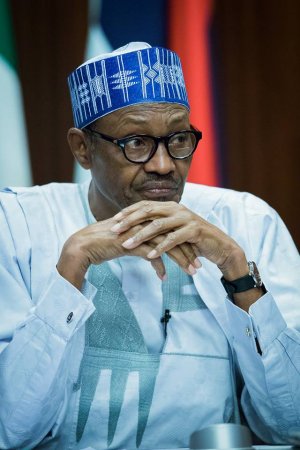According to expert analysis obtained by New Telegraph, Nigeria lost about N1.12 trillion ($4 billion) of her total Gross Domestic Product (GDP) to the additional one-day holiday declared by the Federal Government to mark the Eid-el- Fitr holiday.

The Federal Government extended the holidays to Thursday because the moon was not sighted last Tuesday, after earlier declaring Tuesday and Wednesday as public holidays to mark the Muslim festival, the
Commenting on this development, frontline economist and Managing Director of Financial Derivatives Limited, Mr. Bismarck Rewane, put the estimated cost of the additional holiday at 1.5 per cent of Nigeria’s GDP. Currently, the nation’s GDP is $500 billion and it represents 0.79 per cent of the world economy.
He, however, noted that the one day extension cannot be regarded as a total shut down of Nigeria’s economy, stressing that it is assumed that half of the working class would work today. The GDP, which measures of national income and output for a given country’s economy, is equal to the total expenditures for all final goods and services produced within the country in a stipulated period of time. Similarly, the Organised Private Sector (OPS) said the three-day public holidays had resulted in the economy losing billions of naira.
The OPS, which is the umbrella body of the private sector operators in the country, comprises of Nigerian Association of Chambers of Commerce, Industry, Mines and Agriculture (NACCIMA), Lagos Chamber of Commerce and Industry (LCCI), Manufacturers Association of Nigeria (MAN) and Nigerian Economic Consultative Association (NECA).
They berated the Federal Government for extending the public holiday, saying that the banking, manufacturing, Small and Medium scale Enterprises (SMEs), shipping, construction and service sectors were the biggest losers.
Read more here

The Federal Government extended the holidays to Thursday because the moon was not sighted last Tuesday, after earlier declaring Tuesday and Wednesday as public holidays to mark the Muslim festival, the
Commenting on this development, frontline economist and Managing Director of Financial Derivatives Limited, Mr. Bismarck Rewane, put the estimated cost of the additional holiday at 1.5 per cent of Nigeria’s GDP. Currently, the nation’s GDP is $500 billion and it represents 0.79 per cent of the world economy.
He, however, noted that the one day extension cannot be regarded as a total shut down of Nigeria’s economy, stressing that it is assumed that half of the working class would work today. The GDP, which measures of national income and output for a given country’s economy, is equal to the total expenditures for all final goods and services produced within the country in a stipulated period of time. Similarly, the Organised Private Sector (OPS) said the three-day public holidays had resulted in the economy losing billions of naira.
The OPS, which is the umbrella body of the private sector operators in the country, comprises of Nigerian Association of Chambers of Commerce, Industry, Mines and Agriculture (NACCIMA), Lagos Chamber of Commerce and Industry (LCCI), Manufacturers Association of Nigeria (MAN) and Nigerian Economic Consultative Association (NECA).
They berated the Federal Government for extending the public holiday, saying that the banking, manufacturing, Small and Medium scale Enterprises (SMEs), shipping, construction and service sectors were the biggest losers.
Read more here

